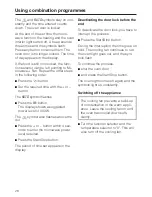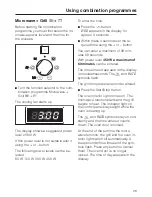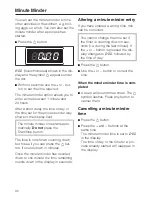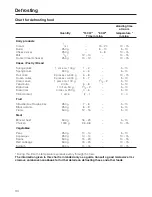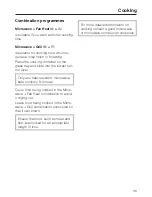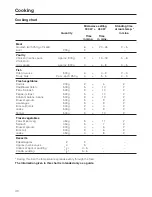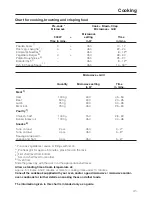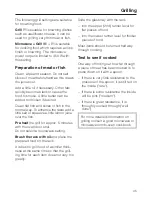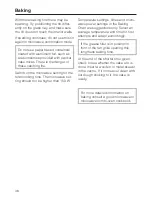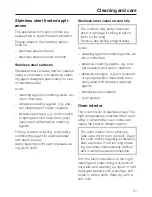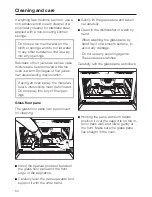
Microwave, traditional and combination
programmes are all suitable for cook-
ing.
Microwave
h
This method is suitable for cooking noo-
dles, pasta, rice, semolina pudding etc.
First select 900 W and then turn down
to 450 W to continue cooking, or 150 W
for simmering.
Place the food in a microwave-safe dish
and cover it.
Place the dish on the oven floor.
Vegetable cooking times depend on the
texture of the vegetable. Fresh vegeta-
bles contain more water than vegeta-
bles which have been stored and usu-
ally cook more quickly. Add a little wa-
ter to vegetables which have been kept
stored. Stir and turn food at least once
during cooking.
Food with a thick skin or peel, such as
tomatoes, sausages, jacket potatoes
and aubergines, should be pierced or
cut in several places to allow steam to
escape and prevent the food from
bursting.
Eggs can only be cooked in their shells
in the microwave oven in a specially
designed egg-boiling device available
from specialist shops. Similarly, hard-
boiled eggs should not be reheated in
the microwave oven as this may lead to
the eggs bursting, even once they have
been removed from the oven.
Eggs can be cooked without their shells
in the microwave oven only if the yolk
membrane has been punctured several
times first. The pressure could other-
wise cause the egg yolk to explode.
Fan Heat
D
This method is recommended for every-
day cooking, e.g. cakes, pastry, me-
ringues, pizza, potatoes and other veg-
etables.
Slide the glass tray with the rack into
the lowest runner level.
The following containers are suitable:
Ovenproof china or glassware, earthen-
ware, pans with heat resistant handles.
Cover foods such as potatoes or vege-
tables which are to be simmered or
poached, to avoid them drying out.
Where a crisp finish is required e.g. for
meat, cook without a lid.
Cooking
38
Summary of Contents for H 136 MB
Page 2: ...Control panel Appliance Description of the appliance 2 ...
Page 62: ...62 ...
Page 63: ...63 ...





